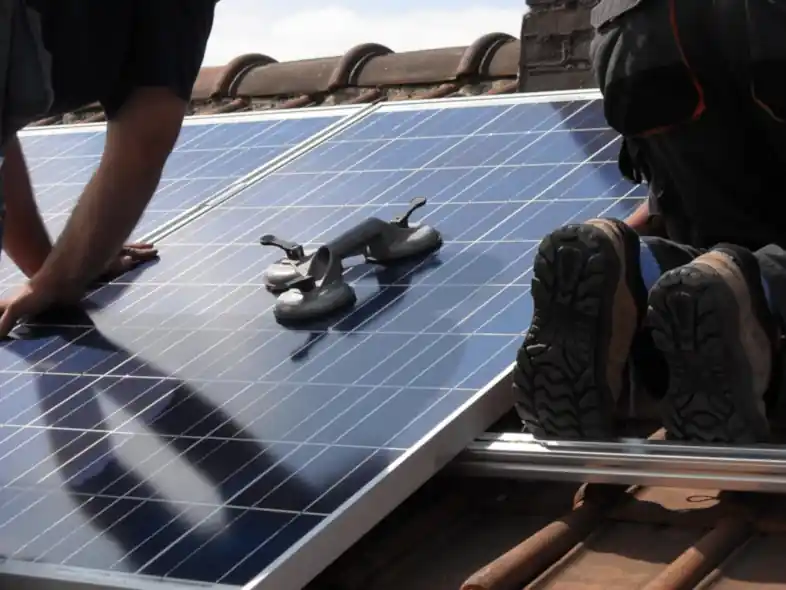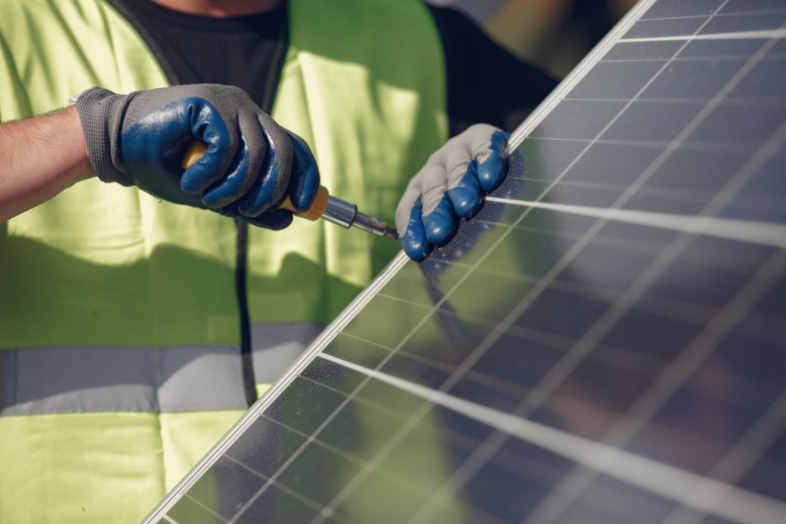Solar Panel Installation: A UK Focused Beginner's Guide
The shift towards renewable energy is picking up steam, making career opportunities in this sector more appealing than ever. Solar panel installers are essential players in this eco-conscious movement, helping to harness the sun’s energy and turn it into a sustainable power source. If you’re considering a career in solar installation, now is the time to act.
This guide will walk you through the steps required to become a solar panel installer in the UK, from understanding the role and gaining the right qualifications to building your experience and exploring self-employment opportunities. Whether you’re looking for a career change or simply starting out, this step-by-step guide is your roadmap to success.
1. Understand the Role of a Solar Panel Installer
Before you pursue this career path, it’s important to understand what a solar panel installer does.
Key Responsibilities
Solar panel installers are responsible for the installation, maintenance, and repair of solar photovoltaic (PV) systems. Their tasks include evaluating a site to determine the best placement for panels, securely affixing panels, connecting electrical systems, and ensuring optimum energy output. These professionals may also troubleshoot issues and educate clients on the operation and upkeep of their systems.

Types of Solar Energy Systems
There are two main types of systems you’ll work with:
- Photovoltaic Panels (PV) – Convert sunlight into electricity.
- Thermal Systems – Use sunlight to heat water or air.
Solar panel installers work in a variety of settings, from residential rooftops to large-scale commercial or industrial installations. Excelling in this role requires physical fitness, attention to detail, and, above all, a commitment to safety.
2. Gain the Necessary Skills and Qualifications
To become a solar panel installer, you’ll need a combination of technical knowledge, certifications, and practical skills.
Recommended Courses and Qualifications
Here are some certifications that will strengthen your credibility:
- NVQ Level 2 or Level 3 in Solar Installation or Renewable Energy – These nationally recognised qualifications provide a foundation for understanding the skills required in this field.
- City & Guilds Qualifications in Electrical Installations – Delve deeper into electrical systems with this widely respected educational pathway.
- CSCS Card (Construction Skills Certification Scheme) – This health and safety certification is often mandatory when working at construction sites.
Valuable Background Experience
Candidates with experience in electrical work, roofing, or construction will have an edge. These fields offer transferable skills that can be directly applied to solar panel installation.
3. Complete Hands-On Training
There’s no substitute for practical experience, and most employers or clients will expect you to demonstrate on-the-job competence.
Apprenticeships and Training Programs
Enrolling in an apprenticeship program is one of the quickest ways to gain practical knowledge. These opportunities often pair you with an established solar installation company, allowing you to learn from experienced professionals.
Work as an Assistant
If you’re just getting started, consider taking on an assistant or trainee role. This allows you to develop a deep understanding of different solar technologies and working environments while building confidence.
Learn on Diverse Systems
Make an effort to work with both small-scale residential panels and large commercial systems. A broad knowledge base will boost your employability and adaptability.
4. Familiarise Yourself with Industry Standards and Regulations
The UK has stringent standards for renewable energy installations, and understanding them is crucial for building a successful career.
Key Regulations to Know:
- Microgeneration Certification Scheme (MCS) – This certification demonstrates competency and adherence to high-quality industry standards.
- Building Codes and Safety Protocols – Knowledge of local building standards and safety protocols is essential to conducting safe and compliant installations.
Staying up-to-date with the latest standards will not only ensure your work remains compliant but also improve your trustworthiness with clients and employers.
5. Career Change? Transitioning to a New Profession
Considering a shift to solar installation from another field? You’re not alone. Many people are drawn to this career for its alignment with sustainability and the global demand for renewable energy.
Steps for a Smooth Transition:
- Skills Assessment – Identify transferable skills from your previous roles, such as project management or familiarity with tools.
- Certifications – Take the necessary courses to gain credibility in renewable energy and solar installation.
- Internships or Apprenticeships – Gain hands-on experience before fully committing.
- Networking – Attend industry events and connect with professionals to explore job opportunities.
If you’re changing careers, you may also need to think about handing in your notice letter to your current employer. The renewable energy market is expanding rapidly, making this the perfect time to transition into this sector.

6. Develop a Portfolio and Gain Experience
Potential employers and clients will want to see proof of your skills. A well-curated portfolio can demonstrate your expertise and versatility.
Tips for Building Your Portfolio:
- Document each completed installation with high-quality photos and project descriptions.
- Start with small projects for friends, family, or local businesses to build your experience.
- Collect client testimonials to add credibility to your portfolio.
This portfolio will not only help you secure jobs but will also position you as a trusted professional in the field.
7. Consider Self-Employment or Starting Your Own Business
Once you’ve gained confidence in your skills, you might consider starting your own solar installation business.
| Pros: | Cons: |
|
|
If you decide to go down this path, be sure to register your business and obtain liability insurance. Platforms like business.gov.uk can help you get started.
Seize the Future of Renewable Energy
From learning the basics of solar panel installation to taking bold steps towards self-employment, this guide has laid out everything you need to launch a career in this growing industry. Solar installer roles aren’t just jobs—they’re opportunities to contribute to a more sustainable future.
Take the next step today. Enrol in a solar installation course, reach out to local companies for apprenticeships, or explore job opportunities in this dynamic and impactful field. The future awaits, and it’s powered by the sun.





